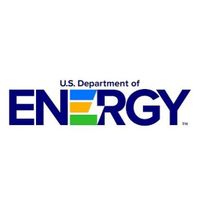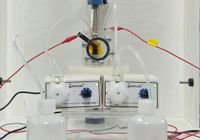Today, U.S. Secretary of Energy Chris Wright announced the approval of a liquefied natural gas (LNG) export authorization for the Venture Global CP2 LNG export project, located in Cameron Parish, Louisiana. This authorization, effective as of March 19, 2025, underscores the Trump administration's commitment to restoring American energy dominance.
Wright expressed enthusiasm about the decision, stating, "The benefits of expanding U.S. LNG exports have never been more clear, and I am proud to be taking action to support the American people and our allies abroad with more affordable, reliable, secure American energy." He highlighted how, under President Trump’s leadership, the administration is achieving quicker project approvals, saying, "Thanks to President Trump’s leadership, we are cutting the red tape around projects like CP2, unleashing our energy potential and ensuring U.S. can continue to meet growing energy demand for decades to come."
This latest action signals that the CP2 project is the fifth LNG-related approval from the Department of Energy (DOE) since President Trump took office. Past approvals include a permit for the Commonwealth LNG project on February 14, 2025, a regulatory order removing barriers for using LNG as bunkering fuel on February 28, an extension for the Golden Pass LNG terminal on March 5, and an additional timeframe for the Delfin LNG project issued on March 10. Once fully constructed, CP2 will have the capacity to export up to 3.96 billion cubic feet per day of LNG.
Tala Goudarzi, Principal Deputy Assistant Secretary of the Office of Fossil Energy and Carbon Management, applauded the approval. She commented, "The CP2 project is another project that has been waiting too long for regulatory action at DOE, and I am glad to see that being corrected today." With Venture Global’s proven ability to deliver projects swiftly, she is optimistic about the project’s imminent realization.
The DOE anticipates issuing a final order to CP2 LNG in the coming months. As the need for LNG export continues to grow, parallel developments in infrastructure support this trend. Notably, approximately 8.5 billion cubic feet per day of new pipeline capacity has been completed across Texas and Louisiana, facilitating LNG delivery to export terminals.
Transitioning from LNG to mineral extraction, a significant achievement in U.S. energy and environmental efforts has come from the research work of Xiaowei Teng, a chemical engineering professor at Worcester Polytechnic Institute. He has recently received an $800,000 grant from the U.S. Department of Energy to innovate the recovery of critical minerals, specifically uranium, from industrial wastewater.
This initiative responds to the predicted surge in nuclear power demand. The International Atomic Energy Agency has forecasted that global nuclear power capacity will develop into 2.5 times its current level by 2050, emphasizing the urgency for resource recovery in this domain. Teng’s research aims to not only recover uranium from toxic industrial wastewater but also to improve ecosystem health.
Teng explained, "Being able to extract uranium from uranium-bearing mining wastewater will improve the health of ecosystems while addressing uranium security for the nation’s needs." His approach shifts the current reliance on expensive and limited adsorption methods for uranium separation.
Rather than continuing with traditional processes, Teng will investigate how heavy metal ions interact with electrode materials. This research aims to create a more effective electrochemical system that can recover uranium more efficiently, thereby producing less toxic wastewater. "We want to move away from reliance on trial-and-error methods and instead figure out the key features that help us extract uranium from wastewater more effectively and efficiently," Teng stated.
The work encompassed by this significant grant is part of a larger narrative concerning environmental responsibility in energy resource extraction. Teng collaborates with Özgür Çapraz, an associate professor at the University of Maryland, Baltimore County, as part of this three-year study. The overarching goals include not only efficiency in uranium recovery but also designing processes that minimize environmental impact.
These concurrent developments in the U.S. energy sector represent critical strides to enhance energy security and address climate challenges. The proactive measures taken—including the approval of LNG projects and innovative research into wastewater treatment—illustrate a comprehensive strategy to increase energy independence while striving for sustainable practices in resource recovery.
As the U.S. continues to navigate the complexities of energy demands and environmental responsibilities, actions by leaders like Chris Wright and researchers such as Xiaowei Teng pave the way for substantial advancements, achieving energy goals while fostering ecological integrity.




